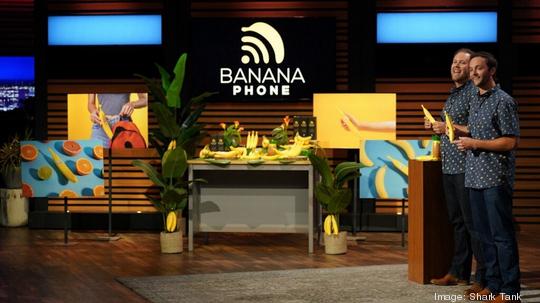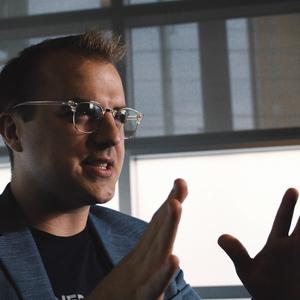
Welcome to The National Beat powered by American Inno, a weekly look at the startup fundings, profiles, analysis and other news you need to know from 40+ cities across the U.S. Want more stories like this in your inbox? Sign up for our future national newsletter from American Inno.
The Big One: Steve Case on why Silicon Valley no longer has "insurmountable lead" on innovation
Steve Case is bullish on the heartland. It was true in 2014, when he and his team launched a bus tour to find and invest in startups across the nation. It was an effort dubbed the Rise of the Rest, which over time as morphed into a seed fund led by Case that invests in upstarts outside of traditional tech hubs like Silicon Valley, Boston and New York.
"Rise of the Rest" is also the title of Case's latest book, which launched last month and aims to highlight the work being done in startup cities throughout the U.S. and encourage entrepreneurship in these cities that traditionally have not been known as startup powerhouses.
The emergence of cities not named Silicon Valley becoming destinations for tech talent and startup creation has been well documented.
Places like Austin, Los Angeles, Seattle, Atlanta, Chicago and elsewhere have seen billion-dollar startup exits and an influx of venture funding in recent years. In fact, the percentage of total seed-stage and early-stage venture capital invested in Bay Area startups fell below 30% last year for the first time in 10 years, according to a report from Case's firm Revolution and VC data company Pitchbook. That's down from around 40% in 2014.
And, as Case told American Inno in an interview, it's not just a handful of cities taking a bite out of Silicon Valley's apple. It's many.
"I think the biggest story for people that haven’t been paying attention to this is it's not just one or two or three cities on the rise. It really is several dozen cities on the rise," Case said. "That's I think the big 'aha' for us over the last decade. I think people might know this city or that city, but most do not realize the breadth of how this is playing out and the potential impacts. It's really quite encouraging."
"The era of a few superstar cities dominating the innovation economy is over," he continued.
Case's new book details how startups in these under-the-radar cities, like TemperPack in Richmond, Virginia, Freightwaves in Chattanooga, Tennessee, and AcreTrader in Arkansas are growing fast and boosting their local economies along the way.
"There was this sense that Silicon Valley had an insurmountable lead because it had this culture around innovation," Case said. "People wanted to be there because it's where most of the venture capital was. It's where most of the successes were. The sense was the Rise of the Rest cities, the only thing they really had going for them was lower cost of living. Now, people realize there's a broader set of advantages some of these cities have."
Read the full interview with Case, and why he believes the pandemic was a tipping point for U.S. startup cities, here.
Startups to Watch
- Phoenix startup Clyn is an online platform that connects cleaning professionals to people who need help tidying up. Clyn, one of 25 companies picked to be part of the AWS Impact Accelerator for Women Founders, is led by Diana Muturia, an immigrant from Kenya.
- Speede Fitness is a Chicago-based strength-training startup that is launching a new fitness machine that's intended to shorten training time and to build muscle more quickly than traditional training methods. it has raised $5 million seed funding from investors Chicago Bears quarterback Justin Fields, cornerback Jaylon Johnson and tight end Cole Kmet.
- Cincinnati startup Genetesis – whose flagship technology, CardioFlux, can rapidly scan for various heart conditions without the use of any radiation, contrast or exercise – raised $17.5 million in funding. The round was led by Austin, Texas-based Mithril Capital, a venture firm co-founded by famed billionaire tech investor Peter Thiel. CardioFlux’s technology allows for the quick assessment and diagnosis of various heart conditions.
- D.C. startup Wolomi built an app for pregnant women of color. Wolomi is an online pregnancy community providing resources and guidance to women of color, such as coaching at different stages of pregnancy. It sets out to address inequities in maternal health outcomes by making information and health experts available to patients.
- Kansas City-based SPG Web + Marketing has created the Pokémon GO for businesses. The firm is gamifying traditional online advertising with its new ad network, Soda Hunt, which takes consumers on online treasure hunts and gives advertisers coveted website traffic.
- The Rounds, a Philadelphia startup focused on custom deliveries of "the boring groceries," has raised $38 million led by Andreesen Horowitz. The Rounds delivers and refills "bottom of the cart" products like cleaning supplies, pet supplies, everyday household items and standby pantry products.
- Gather AI, a Pittsburgh-based inventory management startup that uses consumer drones to autonomously track goods throughout a warehouse, raised $10 million. It's built a real-time inventory visibility platform to solve the challenge of misplaced items in warehouses.
- Portland cybersecurity startup Eclypsium raised $25 million from investors to boost product development and sales momentum.The startup’s founders Yuriy Bulygin and Alex Bazhaniuk are alums of Intel Corp. (Nasdaq: INTC) where they were both security researchers focused on the firmware layer.
- Twos, a Tampa-based company that’s part social media, part note-taking app, closed a $1.4 million pre-seed round. it provides a digital platform for users to write down a litany of things ranging from to-do lists to a child’s allergic reaction.
- Winston-Salem, NC-based Unbox the Dress is a wedding dress redesign and repurpose company. The startup can take fabric from a mother's vintage dress and make a robe for a daughter to wear while she gets ready on her wedding day, for example. Selling nationally through e-commerce, Unbox the Dress has served over 5,000 clients.
Behind the deal: From bootstrapping to a major acquisition
When Andy Eastes broke the news to his children that he had sold the company he founded in 2011, his daughter cried.
"She got over it real quick, but I realized that's all she's ever known since she was born — daddy and SkuVault," he told KY Inno. "I had to explain to her that it was a good thing."
And the recent exit is a good thing for Eastes, his team and, more broadly, the Louisville startup ecosystem. SkuVault, a Louisville-based provider of inventory-management software (IMS) and warehouse-management solutions (WMS), sold to U.K.-based Linnworks for an undisclosed amount in early September.
Indigenous Peoples Day spotlight: Helping consumers find Native products for their pantry
For Se-ah-dom Edmo (Shoshone-Bannock, Nez Perce and Yakama) her startup is more than a business, it’s the foundation for a movement.
She is taking her background in community organizing and movement building and applying it to Indigenize, the business she started last year with her husband, James Parker, an enrolled citizen of the Chippewa Cree, Portland Inno reports. The company's product is a curated gift box of items from tribal and Native-owned businesses with the goal of not only supporting those producers but also introducing consumers to adding indigenous products to their grocery shopping. Indigenize is her response to the lack of Native produced products she saw on store shelves while shopping for her family during the pandemic.
Weird and Wired: A banana phone hits Shark Tank
Max Brown and Brian Brunsing might not have walked away from their "Shark Tank" pitch with funding, but they did gain exposure and insight.
The pair recently pitched their Banana Phone, a Bluetooth-enabled mobile headset shaped like a – you guessed it – a banana, Buffalo Inno reports. The episode of the business reality show aired on Sept. 30.The business, which started in 2017, did about $560,000 in gross sales last year and is on track to surpass $1 million this year, according to Brown.




